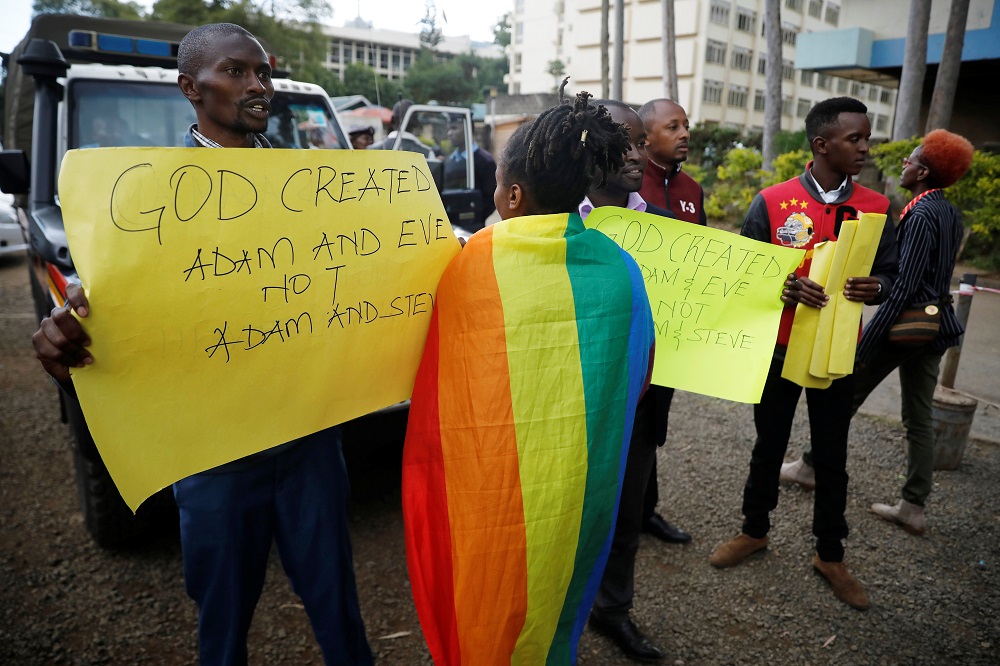Nairobi: Burundi national Nina Muregwa, 17, who sought refuge in Kenya after escaping death threats back home over her sexual identity thought she had found a sanctuary there. Recent incidents, however, have left her scared for her life once more.
She and 16 other LGBT refugees allege they have been harassed by police in recent weeks in Kenya, which is a rare regional haven for the gay community and yet maintains that gay sex is illegal.
They allege that five police officers arrested them at gunpoint at home and locked them up without charge earlier this month. After they were released two days later June 10, they allege another group of police officers tried to arrest them but the U.N. Refugee Agency intervened.
Nairobi Police Chief, Philip Ndolo, told The Associated Press that the refugees were arrested for their own protection. He did not give details.
The refugees have now locked themselves in their two-bedroom house in the capital, Nairobi, saying they are too frightened to venture out even for food because of threats from local residents.
Kenyan human rights activists say they saw this coming. They had warned that a closely watched High Court ruling last month upholding the criminalization of gay sex would bring a backlash against the LGBT community.
“Some Kenyans would now feel emboldened to act out, even with violence,” said leading gay rights activist Eric Gitari.
Gay refugees are especially vulnerable. Last month some of them protested outside the U.N. Refugee Agency office in Nairobi demanding more support from the agency and more respect from Kenyan authorities. In April another group of at least 55 LGBT refugees held a sit-in protest outside the office demanding resettlement as Kenyan authorities sought to close the emergency shelter where they stayed.
Finding a safe place to live has become a challenge, some of the refugees say.
Muregwa, who said she left Burundi after her lover’s mother threatened to kill her, eventually settled in Nairobi’s low-income neighborhood of Githurai and found shelter with fellow refugees.
“The U.N. refugee agency has told gay refugees it would help in finding accommodation but the recent ruling has shown that we are not welcome in this country,” Muregwa said.
“We cannot live where we are unwanted,” she added.
Another member of the group that alleges police harassment, David Irakoze, said they are disappointed with the treatment they receive from the U.N. agency and Kenya’s government.
“The USD 60-a-month stipend we receive from the U.N. agency isn’t enough to afford living in more tolerant communities,” Irakoze said.
“We only eat porridge once a day. How can one only survive on porridge in this life? We are suffering,” said Mvugonziza Espoir, another Congolese refugee.
The U.N. Refugee Agency in a statement last month said that while Kenya’s government is responsible for ensuring the safety of gay refugees, the agency is also actively involved in ensuring the protection of all refugees in the country.
Robert Hurt, the Head of Risk Management and Compliance at the U.N. Agency’s Regional Office, said, “The agency provides protection, support and counseling. If people call up our helpline or have contact with one of our protection officers, we will assist them. “
According to the United Nations refugee agency, Kenya is the only East African nation where someone can seek asylum and be registered as a refugee based on their LGBT status.
AP
